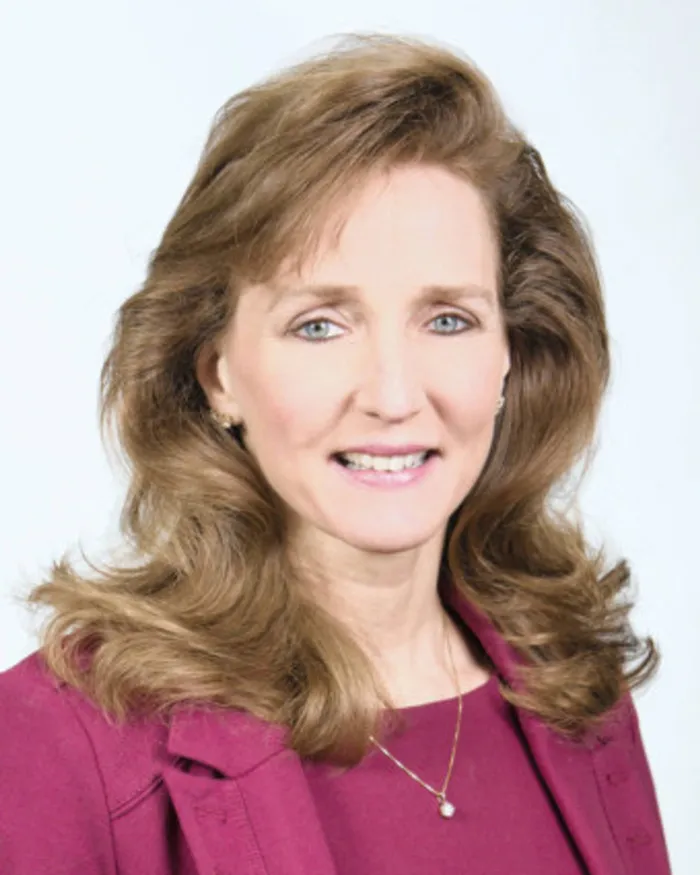WEF Leader Series: Laura Lane

Business Report chats to Laura Lane, the president of global public affairs at UPS, as the WEF Africa summit gets under way...
Q: You were a diplomat in Rwanda at the time of the country’s genocide: how would you describe the attempts to rebuild after this awful period?
A: My time in Rwanda in those days remains unforgettable. But just look at why I am returning today – it’s for the major meeting of minds under the auspices of the World Economic Forum (WEF) on Africa. And Rwanda is the host.
The WEF on Africa first took place 26 years ago in South Africa, which has also seen its fair share of challenges.
So I see a pattern of rebuilding and resilience throughout Africa and the fact that we’re in Kigali carries with it great meaning. I can only describe the country’s attempts – and achievement – to rebuild in one word: Inspiring.
Consider that over the last decade or so in Rwanda, deaths from HIV, tuberculosis and malaria dropped by 80 percent. Maternal mortality rates went down by 60 percent. And life expectancy? It has doubled!
The health system has turned around dramatically and gross domestic product (GDP) has tripled. Rwanda is the only country in sub-Saharan Africa that looks like it will achieve most of the Millennium Development Goals.
Q: You have spoken of your experiences as a US foreign service officer during the time of the genocide in a TED Talk: how did that shape your own life in the years that followed?
A: I learned that to be the change you want to see in the world, sometimes you can work through the established order and follow all of its rules, but at other times – when the regret for not having done more will be too great – you have to muster all of your courage, follow your heart and then… write your own rules.
Q: These days you still travel to Africa frequently: what do you see when you go there and what are the most important challenges that need to be addressed?
A: There is so much good news coming out of Africa. But let’s be honest: African countries have many real challenges ahead. It starts with a need for investment. The World Bank estimates that the continent needs an extra $90 billion (R1.4 trillion) a year for infrastructure alone.
There are also needs for sustainable governance and education and skills development.
There are many economies that are on the rise and consumers are driving demand for new goods and services, creating an abundance of opportunities for businesses – both local African companies and global manufacturers, suppliers and retailers.
Africa is a strategic priority for us because we see tremendous opportunity across the continent to connect it through a global supply chain with the rest of the world. This connectivity can be boosted through improved supply chains systems and customs modernisation.
Getting this connectivity right will buttress sustained investment in the continent’s future. And we are here because we want to be a part of the growing and vibrant community. That takes working locally and being part of a solution to enable those here who want to reach the rest of the world. And, of course, helping companies throughout the world tap into a growing Africa!
Q: Not many people know that UPS is one of the world’s largest employers, but this scale must give you a strong sense of the power of innovation to transform businesses: which technological innovation is UPS most excited about these days?
A: One of the most important qualities of networks is that they constantly change, evolve and learn. Our global network is no different. And it has applications beyond just business. We use our network to support humanitarian efforts, too.
We just kicked off a new partnership here in Rwanda using new technologies. We are partnering with the Ministry of Health of Rwanda, Gavi, the Vaccine Alliance and Zipline International on the development of a medical supply chain designed to increase the efficiency of delivering life-saving supplies to clinics and patients in hard-to-reach areas utilising a drone delivery network.
These unmanned aerial vehicles will deliver health supplies, initially blood supplies, with the potential for vaccines in the future. They go where other vehicles can’t go, so it’s yet another network evolution. Technology is not just a competitive edge for us – it’s the backbone of a world-class logistics network. We’re constantly looking for options to improve our operations and bring efficiencies to our customers.
We also bring our know-how and efficiencies to our partners in the humanitarian and global health sectors through public-private partnerships. UPS has been a long-time contributor to humanitarian causes both in terms of financial support and by using our network to help when disaster strikes.
For example, last year we delivered 263 shipments to 48 countries – that’s a shipment for every single day of the standard work week. And this year we announced a 40 percent increase in our humanitarian programmes.
Q: If you could see one outcome achieved at the WEF on Africa, what would it be?
A: I would like to see an end to racial, religious and cultural tensions through the implementation of foreign policy initiatives that promote a free, prosperous and more secure world.
But beyond that, at an even more basic level, is the aspiration to promote fundamental human rights and freedom. We all share a singular humanity, and we should help those we can, when we can and where we can.
But if you were to limit it to just one thing, I would like to think that WEF taking place here in Rwanda will have a tangible effect in helping build Africa’s image as a great destination for investment and a symbol of the human spirit of resilience.
* Laura Lane is the president of global public affairs at UPS.
BUSINESS REPORT